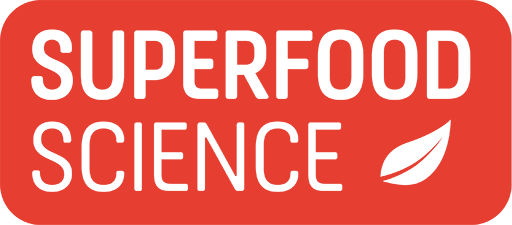If you’ve been feeling mentally scattered or sluggish, you’re not alone. Recent economic upheaval, fueled by reciprocal tariff increases, has caused many individuals to experience heightened stress and anxiety related to daily living and financial stability.
This chronic stress not only impacts mental well-being but also has tangible effects on physical health, particularly the immune system. Today’s fast-paced world, fueled by AI and technology innovations, also demands high performance, especially for young adults juggling school, careers, and life’s daily stresses. Naturally, many are turning to functional foods and supplements for cognitive support—enter Lion’s Mane mushroom, often called the “memory enhancement mushroom.”
But is this trendy superfood truly effective for brain health? A recent clinical trial helps shed light on how Lion’s Mane may support focus and stress resilience.
Lion’s Mane Focus: The Science Speaks
In a pilot study by Docherty, Doughty, and Smith (2023), researchers investigated the acute and long-term effects of Hericium Erinaceus, better known as Lion’s Mane, on cognitive performance, mood, and stress in healthy young adults aged 18 to 45.
The study found that participants who consumed 1.8 grams of Lion’s Mane daily experienced quicker response times on the Stroop task just 60 minutes after taking a single dose. Over 28 days, there was also a notable reduction in subjective stress levels in the Lion’s Mane group compared to the placebo.
These findings suggest that Lion’s Mane may support focus and mental clarity, especially in high-pressure environments—a concept commonly referred to as Lion’s Mane focus.
Why This Memory Enhancement Mushroom Matters
Lion’s Mane is rich in bioactive compounds such as hericenones and erinacines, which are known to stimulate nerve growth factor (NGF)—a protein essential for neuron growth and cognitive function. These compounds can cross the blood-brain barrier, potentially influencing neural plasticity and memory retention.
That’s why Lion’s Mane has earned its reputation as a memory enhancement mushroom. Users often report improved recall, sharper thinking, and a calmer mental state, even under stress.
Real-World Feedback on Lion’s Mane Focus
“I think this supplement does what it says it does. I do feel a bit more focused and not as 'brain sluggish' when I take these, and I seem to get more done." – Shari M.
"I really enjoy taking these pills -- they definitely help me stay focused and sharp throughout the day, even when I'm on low sleep. The pills are an easy size to swallow, the flavor is mild, and I really like the formula. They don't make me feel wired or overwhelmed, even if I drink coffee after taking it. It's more of a mellow experience that helps with mental clarity.” – Clair B.
These testimonials, while anecdotal, align with the emerging science of Lion’s Mane’s adaptogenic and neurotrophic effects.
Choosing the Right Lion’s Mane Supplement
For best results, opt for a high-quality supplement that offers:
- A full-spectrum extract with both fruiting body and mycelium
- Transparent sourcing and manufacturing standards
- Third-party testing for potency and purity
Take Control of Your Cognitive & Immune Health
If you’re looking to improve your focus and mental resilience, consider making this memory enhancement mushroom with immune-supporting benefits part of your daily wellness routine.
Shop Superfood Science’s Cognitive Rescue Lion’s Mane Premium Blends—specially crafted to help support Lion’s Mane focus, memory, and stress response. Cognitive Rescue contains both highly concentrated, bioavailable organic lion’s mane fruiting bodies dual extract and whole Lion’s mane mushroom powder from fruiting bodies and mycelium. It also includes an all-natural plant-based B vitamin complex for additional brain and immune health nutrients.
Conclusion
While the field is still evolving, the initial findings are promising: Lion’s Mane may offer a safe and effective way to support mental performance and well-being. As always, consult with your healthcare provider before starting any new supplement.
Reference
- Cohen, S., Janicki-Deverts, D., & Miller, G. E. (2007). Psychological stress and disease. JAMA, 298(14), 1685–1687. https://doi.org/10.1001/jama.298.14.1685
- Dhabhar, F. S. (2009). Enhancing versus suppressive effects of stress on immune function: implications for immunoprotection and immunopathology. Neuroimmunomodulation, 16(5), 300–317. https://doi.org/10.1159/000216188
- Docherty, S., Doughty, F. L., & Smith, E. F. (2023). The acute and chronic effects of Lion’s Mane mushroom supplementation on cognitive function, stress, and mood in young adults: A double-blind, parallel groups pilot study. Nutrients, 15(22), 4842. https://doi.org/10.3390/nu15224842
- Li, I. C., Lee, L. Y., Tzeng, T. T., Chen, W. P., Chen, Y. P., Shiao, Y. J., & Chen, C. C. (2017). Neurohealth properties of Hericium erinaceus mycelia enriched with erinacines. Behavioural Neurology, 2017, 5802634. https://doi.org/10.1155/2017/5802634

